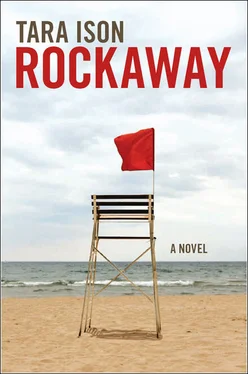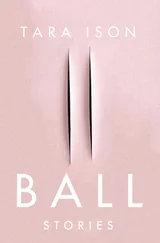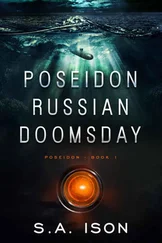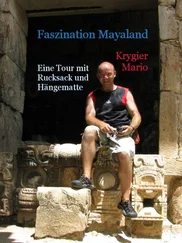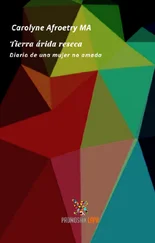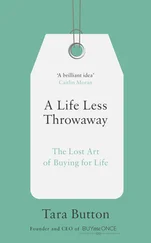The paint coils in thick strings into the trashcan. She touches a finger to it, swipes it across the back of her hand like a lipstick trial. She opens a tube of ultramarine blue, squeezes it all out carefully from the bottom, adds a smear of blue to her skin. Pretty. She releases a tube of cadmium yellow after it. Good. The primary colors, like a circus. She starts on the secondary colors, the tertiary colors, all the colors on the wheel. The color wheel, Ferris-wheel-spinning in her head. One by one she empties out tube after tube. The colors’ moist coils weigh down the trashcan’s plastic liner, settle into sedimentary layers. She looks, thrusts her hands in, breathing hard. A bold, clashing, dirty mess, yes.

SHE TRUDGES DOWN the brilliant white span of beach as far from the water and oily, screaming flock of beachgoers as she can get. The hot sand humps itself over and over in small mock dunes, and her sandaled feet sink into it, making the walk harder.
She feels thick-mouthed, plastered with heat. There is nothing colder than the sun at its height in the summer , Pissarro said that once, or Renoir, something about how hard it is to paint snow, that nature is colored in winter and cold in the summer. Whatever. I ought to have put sunscreen on, she thinks, but then remembers something she read once, that most skin damage occurs during childhood, anyway. That’s when cancer starts. It just takes so long to grow, turn lethal. And by then it’s too late.
A reclined and glistening group of cocoa-buttered, seal-brown teenage girls in string bikinis look oddly at her as she stumbles past, but she can’t imagine why.
Marty’s door is slightly ajar, the screen closed but not locked. She taps quietly, then again, louder.
“Hello?” she calls. “Hello?”
There’s no answer, no sound from inside. She doesn’t know what else to call. It’s Sarah is too formal, It’s me too assuming, presumptuous. Maybe he isn’t even home, maybe he’s out strolling. There’s a pebble in her sandal. The walk here has left her sweaty; her face hurts from squinting out the sun, her skin is at blister range. She is so thirsty. She wants some water, clear icy water. No, she wants a crystal, silver-filigreed glass of iced vodka, yes, just touched sweet pink with apricot schnapps. How lovely that would be. She wants a bath of it to crawl into, to cool her and soothe. The inside hallway looks soft and dark. Past the hall, into the dining room, she sees the two lighted white candles on the table, left to burn down. She hears murmuring, more than one voice. She takes off her sandals and leaves them on the step, then opens the screen door and enters, closing it quietly behind her.
“Hello?”
She turns into the murky living room, toward the murmuring. A group stands in silhouette against the window. Her eyes adjust, and she makes out Marty, his height, his longish hair, dressed in an inky suit and black velvet, gold-threaded yarmulke shaped like a pillbox hat. He is standing with Itzak and six, seven, nine other men, a black-clothed and bearded blur, their white tzitzit fringes hanging from under their coats like tampon strings. They hold books the size of bricks, Hebrew letters spiking and cramming the pages like nails stuffed in a box. A minyan, a quorum of men for prayers. It looks like a meeting of Amish Elders, a council of Puritan Magistrates assembled to try the town witch. They’ve come to burn her, press her to death with stones, drown her in a murky pond. Their bone black clothing absorbs all the light in the room, and she feels unable to breathe.
“Excuse me,” she says. “I’m sorry,” she says, taking a step back. She stumbles. Tries to balance.
Marty sees her and his face blinks in surprise. “Hi,” he says, slowly.
“Hi.”
“Where did you come from?”
“I got back,” she says.
“Wow,” he says. “Are you all right?”
“I’m fine,” she says. “I’m good. I’m great. I’m just thirsty.”
“What happened to you?” His eyes flicker over her, and she looks down at her arms, her chest — she’s mottled with paint. Her arms, chest, shoulders. Still wet, oily. Her hands are gloved with it.
“Nothing,” she says. “Look.” She holds her hands out to him, as if supplicating. “I was painting. I finished painting. I’m finished. See?”
“Good. That’s good, but. .” He looks confused, takes a step forward. “Are you sure?”
“Nothing. I just. . had to get out of the house. Get away. Now that it’s done. I wanted to celebrate.”
“Hello, Sarah,” Itzak says. He smiles at her, drifting his fingers through his beard. The other men nod, and several of them go back to praying. Their mumblings rise and fall, a minor key, she remembers that, Frankie trying to teach her about music and harmonics. How the notes relate to each other, complement each other, something like that.
“Hello,” she says primly. She wishes Frankie were here instead, with Tony and Sammy. She misses their fun, the light of their Mafioso jostling. The coolness in the room raises gooseflesh on her painted arms, the backs of her thighs. She sees her nipples poking through her bikini top. She crosses her arms in front of her, feeling indecent. Immodest. Tzenius , she remembers. She should have covered up. She wishes she were coated in a thicker, more opaque layer, a carapace of paint. She digs her bare toes into the carpeting.
“How’s your friend?” Marty asks.
“Fine. If I ever had a baby, I’d have it at home. I’m a total disciple now.”
“She was the doula,” he informs Itzak. “Her friend had a baby at home, with a midwife. Beautiful, huh?”
“Ah,” says Itzak.
She watches Itzak’s hand stroking his beard, finds it oddly sexual. She shifts her weight, looks back to Marty. “And we lit candles on Friday nights,” Sarah tells him. “Emily taught me the prayers in Hebrew.”
His face brightens in pleasure. “That’s good.”
“The blessing over candles and the blessing over wine.” But it doesn’t mean anything to me, she thinks, nothing at all.
“I’m glad.” He nods happily at her. “See, that’s good.”
“It was really beautiful,” she says, “the light, the prayers.” Empty ritual, just dead words, rote words. Phylum Molluska, Mytilus Edulis .
“That’s good for you,” he says. “I think that’s really good for you.”
“Yes,” she says.
“So, hey—“ Marty begins.
“No, I know,” she says. “I just wanted to say hi. I knew you couldn’t call, so. . I’ll just see you—”
“No, wait a minute.”
“I’ll see you later sometime.”
“No, come on. Don’t leave.”
And where are you going to put me? she wants to ask. Where is it you think I can go?
He separates fully from the group of praying men, approaching her. “Come on, come up here,” he says, indicating she should go upstairs.
“All right,” she says. “Bye,” she says back to Itzak. She begins to climb.
“We hope to see you next Friday, Sarah,” Itzak says. “We’ll have you say the blessings.”
“Oh,” she says. “I don’t know them very well.”
“‘Every act carried out in sanctity is a road to the heart of the world’,” he quotes to her.
“Oh. Okay.”
“‘God’s radiance glows in all human beings’,” he continues. “‘But it does not shine in its full brightness within them. Only between them.’”
She rubs at her arms, smearing, coating herself. “Of course.”
“That’s good,” Marty says to Itzak. “I’ll give her that to read.”
“So, come Friday,” Itzak says to her. “We’ll have margaritas and argue Buber. You can bring fruit.” He returns to the other men, still caressing his wisps of beard.
Читать дальше
